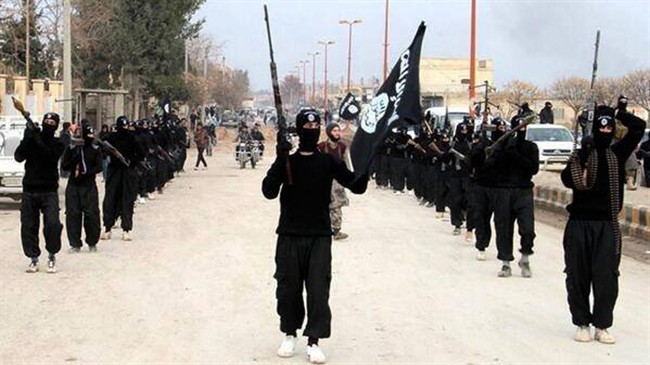Canada, like other countries taking part in the U.S-led coalition against ISIS, is now the subject of threats from the savage militant group, responsible for killing thousands of people in Syria and Iraq.

The question is: how real a threat is it?
It’s certainly not as dire and imminent as it is for Iraqis and Syrians, who have fled their homes by the hundreds of thousands for fear of being slaughtered.
READ MORE: Canadian government lists ISIS as terrorist entity
Western leaders have sounded warning alarms about the possible threat of homegrown radicals who travel overseas to fight with groups such as ISIS — also known as the Islamic State — and come back with even more extremist ideals and motives.
And now that Canada has sent 69 special force soldiers to Iraq in an advisory role (although their activities are unclear) and transported weaponry and equipment to help battle ISIS, the Islamist group has urged jihad-minded people to seek revenge on its behalf.
READ MORE: Canada’s role in Middle East could expand, says Harper
“I think the threat ISIS put out over the weekend should be taken seriously,” said Thomas Juneau, an assistant professor at the University of Ottawa’s Graduate School of Public and International Affairs.
Defence Minister Rob Nicholson said earlier this month ISIS is a “real and growing threat to civilization itself.” Juneau is skeptical of that.
He said, when it comes to ISIS, there are two possible threats that need to be better analyzed: the oft-discussed foreign fighters, coming home to Canada and carrying out an attack or training others to do so, and ISIS itself coordinating attacks abroad.
Last month, Public Safety Canada indicated there were at least 130 Canadian passport holders who were suspected of travelling overseas to take part in terror-related activity — not limited to, but certainly including those that have gone to join ISIS.
The government is also aware of 80 such individuals who have returned home to Canada.
READ MORE: How the feds plan to stop Canadians from joining extremist groups
The probability of returning extremist travellers posing a credible threat to Canadians is actually quite low, if you break down those numbers, said Juneau — formerly a strategic analyst covering the Middle East for the Dept. of National Defence.
Terrorism expert Dr. Ron Crelinsten agreed the returning foreign fighter threat is “minimal.” Even still, the intelligence gathering community is keeping tabs on perceived threats.
READ MORE: The tenuous human bridges in Canada’s fight against ‘homegrown’ terror
Crelinsten, an associate fellow at the University of Victoria’s Centre for Global Studies and author of the book Counterterrorism, pointed out the recent anti-terrorism raids in Australia, in which authorities detained 15 people suspected of being involved in planning ISIS-inspired “demonstration killings.”
Australian Prime Minister Tony Abbot said the alleged attack plans were encouraged by an Australian who holds a senior position in ISIS. Police were tipped off to the plans through an intercepted phone call, according to the Guardian.
Will ISIS try to attack Canada?
According to Juneau, the likelihood of ISIS actually carrying out an attack targeting Canada is also low — at least at this time — and the chances aren’t nearly as high compared with the capabilities of much more established, wider-reaching terror organizations.
“At this point, it doesn’t appear that ISIS has a very elaborate external operations department, the way that al-Qaeda has,” he said. “But, it’s very plausible to think that they’re establishing that capability right now.”
READ MORE: ISIS releases Hollywood-style trailer threatening war on US
Al-Qaeda does have a global reach and a lesser known al-Qaeda affiliated organization, called Khorasan, operating in Syria that “may be the most intent on hitting the United States or its installations overseas,” the New York Times reported Sept. 20.
“These guys actually have international experience, they have the networks, they have the ambitions to at least think about international operations,” Juneau said of Khorasan, believed to be made up of veteran al-Qaeda members led by 33-year-old Muhsin al-Fadhli.
“Maybe these guys are smaller on the ground in Syria… but in terms of Western, U.S., Canadian, interests, they matter more than their military force suggests.”
Crelinsten added the main goal of ISIS is to establish a caliphate (an Islamic state) and the principal targets of their recruits are signing up to fight for and protect that state.
“Al-Qaeda is the one who is at war with the West,” he said.
With files from The Canadian Press


Comments